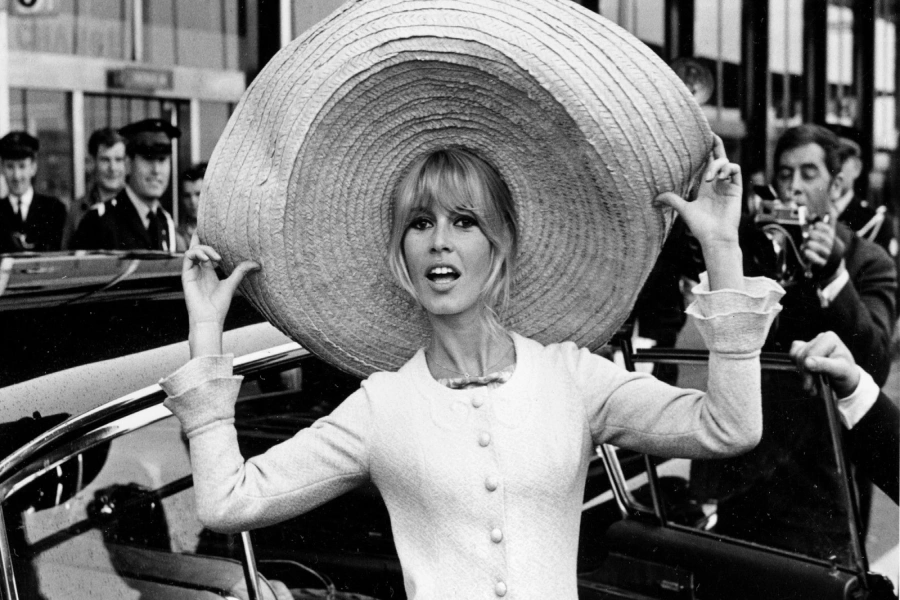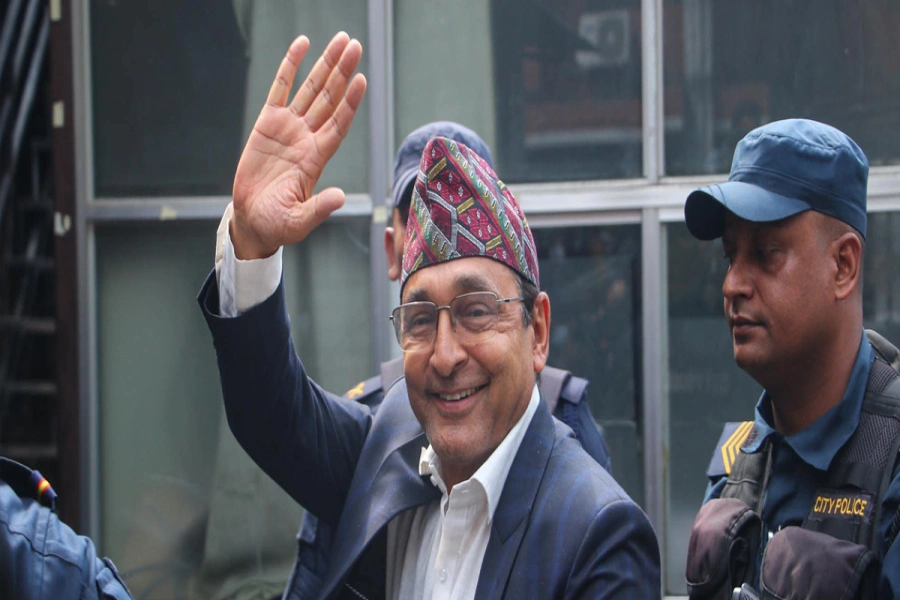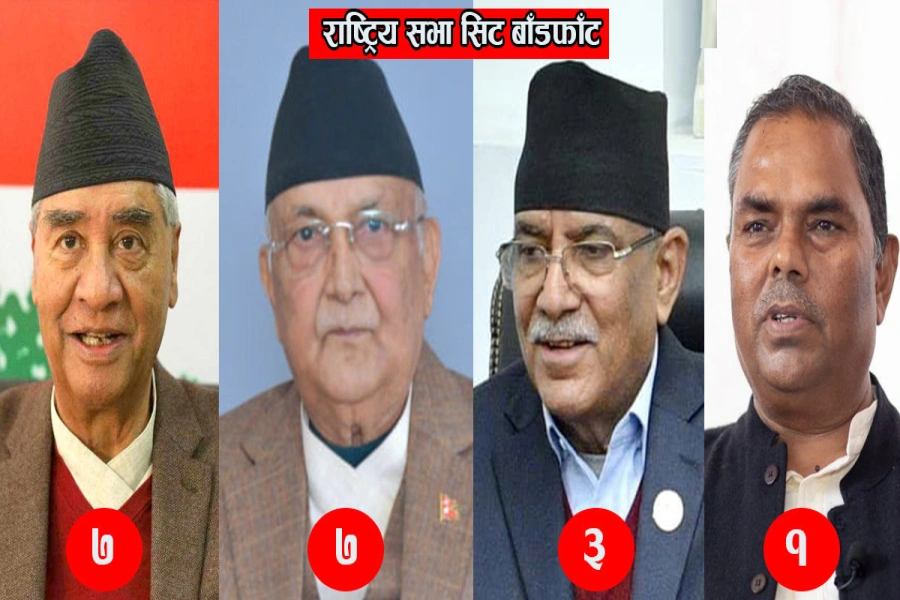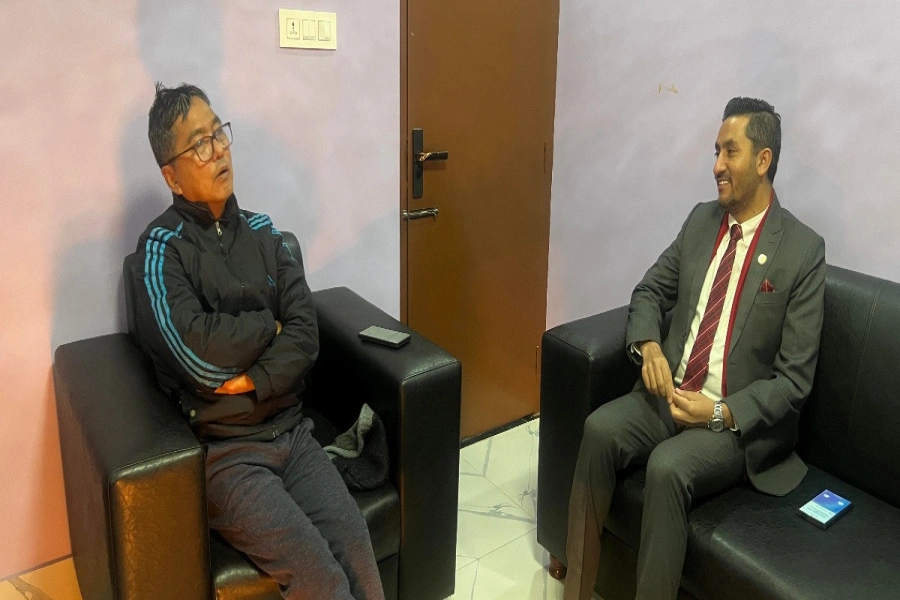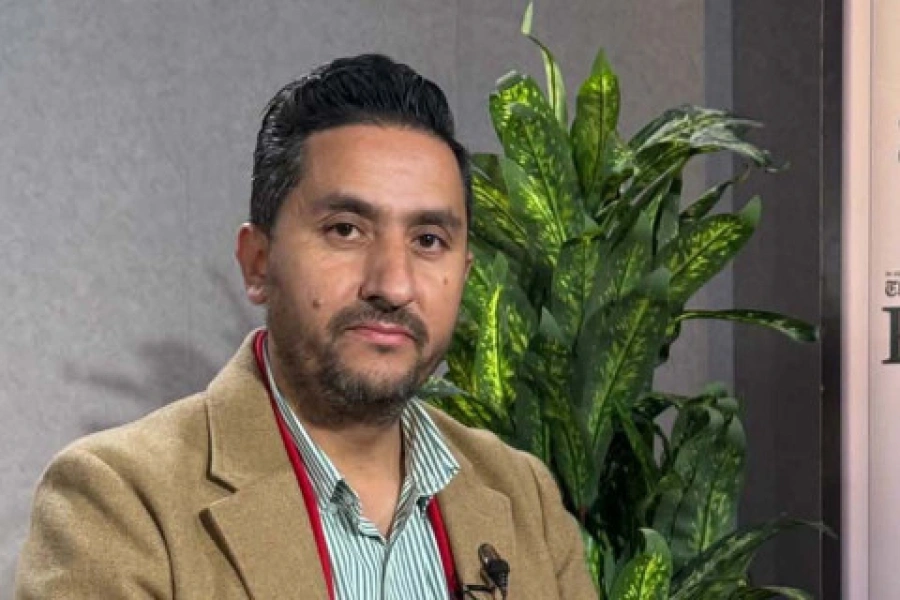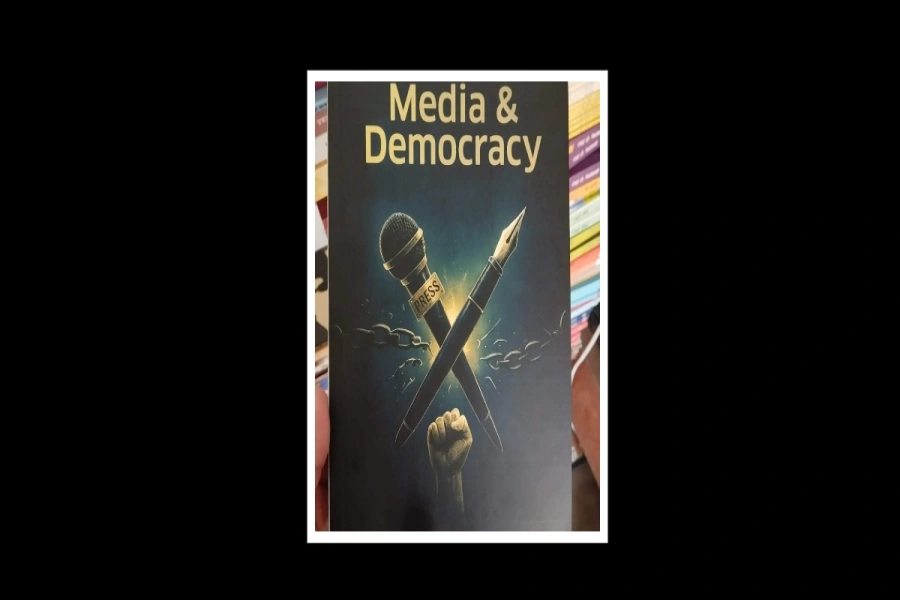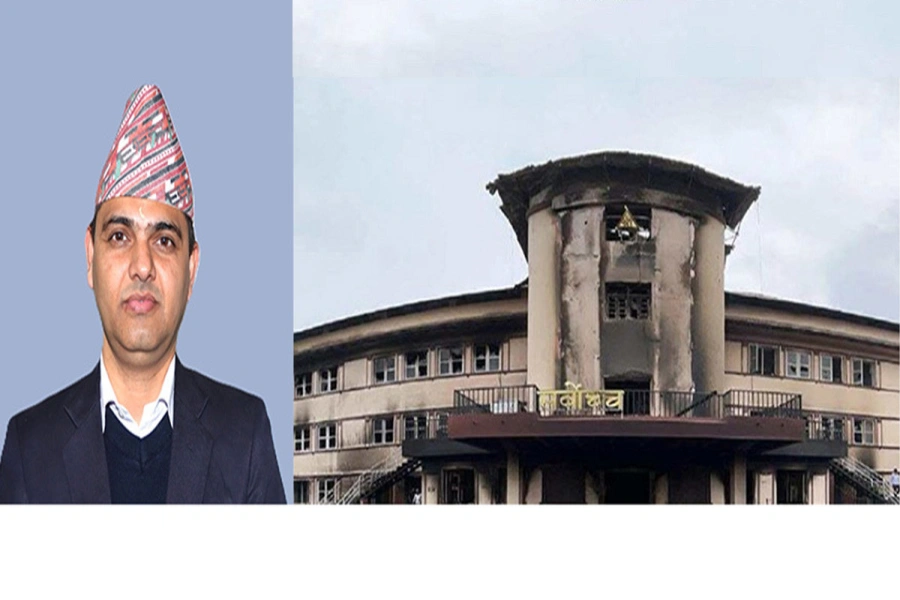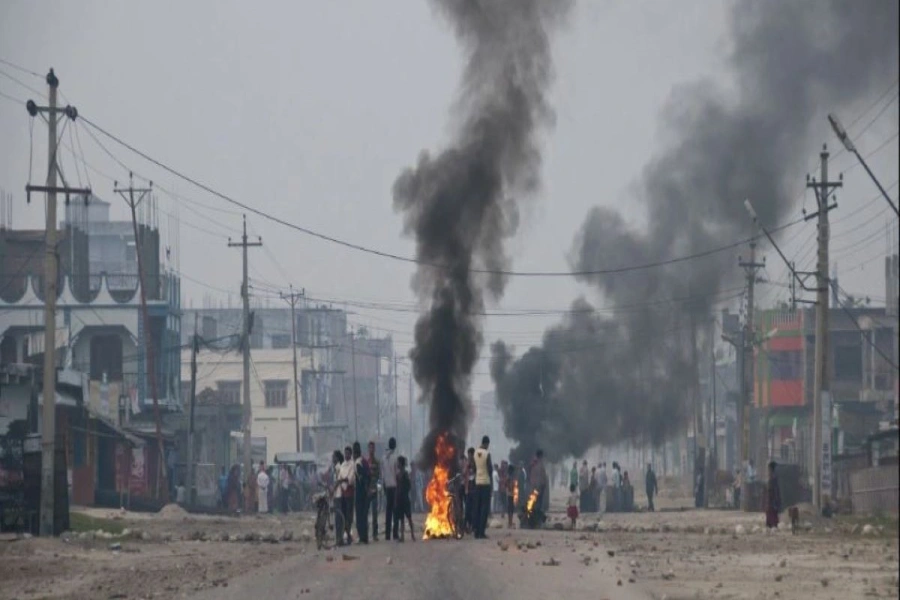It would be a mistake to attribute the mess the ruling party has created, or the misconducts demonstrated by political parties across the spectrum, as the consequence of the constitution.
The Constitution of Nepal 2015 turns five today. So much has been written about it that anything you say might sound like a repetition of the same old story, but this time I see a noticeable shift in the way we have started to respond to it. First, rather anarchic anti-constitution brigade which never tired venting ire on the constitution for all the ills—from the potholes in the neighborhood to the bad governance—have fallen silent or become less vocal, or perhaps they have realized their story has become obsolete.
Second, in five years, the constitution has gained solidity and this reflects on the fact that people have stopped questioning the permanence of the constitution. At least the stability of the constitution looks guaranteed. In the fifth year, despite the negative narrative created by the anti-constitution brigade these four years, the constitution has found a much higher level of acceptability.
I have stood in favor of this constitution since the beginning not because this is the world’s best constitution, as was said in 2015, not because there are no imperfections in it but more because of the context in which it was born, which is so unsettling in Nepal’s history.
This is perhaps the only constitution citing which the then government of India went on to impose blockade on Nepal. Often, blockade by a southern neighbor on Nepal has been in response to Nepal’s closer engagements with China—think of the blockade of 1970 and that of 1989, for example.
Looking back, there was anxiety and hopelessness before September 20, 2015: Will Nepali political actors make it? Will they be able to stand against the foreign pressure? What will happen if the constitution cannot be promulgated? We could be reassured only after the constitution was declared and authenticated by president Ram Baran Yadav on this day five years ago, Asoj 3, 2072 BS.
In the last four years, some noticeable changes have taken place. The elections of three spheres of federal structure—local, provincial and federal—was in itself a milestone. It paved the way for forming governments in all three levels and laid the bedrock of federalism. Federalism, once a deeply contested and unthinkable idea (I had my reservations about it too), has become a reality.
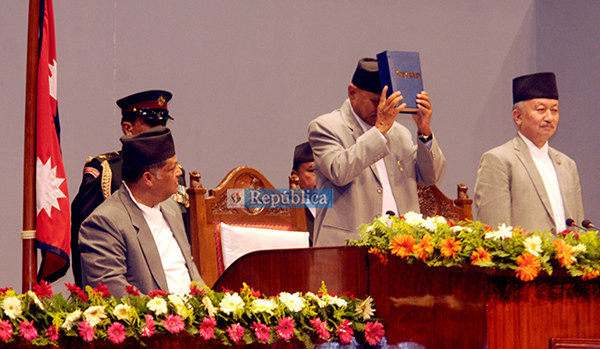
Shame and vindication as Australia digests report of Afghan mil...

Let’s reflect
However, there is a lot to reflect on whether the country is being run according to the spirit of the constitution. The constitution had provided a huge space for representation, and quality representation for that matter, of women, Dalits, Janajatis and Madhesis. How have they been represented in political systems—in the government, in the parties and in the bureaucracy? Has this space been properly exploited? By the same token, the constitution helped bring to power representatives from Madhesh and Janajati groups, to whatever extent that is. How effective were they in articulating the concerns and voices of their communities and serving them?
The constitution provisioned for proper checks and balances among the executive, the legislature and the judiciary? How far has this principle been followed in practice?
Many of the constitutional bodies are yet to be given a full shape. While there is some progress in formulation of federal laws, there still is much to be done in this direction. There is the issue of internal mis-governance of political parties. Which of the political parties have restructured themselves in line with the federal structure? Which of the political parties have ensured fair representation of women and the marginalized communities?
In the last four years, we have seen a terrible mess in governance from the federal to the local spheres. We have seen that leaders are not accountable. Most ministers from the center to the province and down to the local levels have either failed to perform or have proved to be either inept or corrupt.
Ruling Nepal Communist Party made a mockery of the whole system by elevating Bamdev Gautam—despite the fact that the general public was opposed to it, despite that Gautam himself was rejected by the people—to the National Assembly.
We have witnessed several such ills in the last four years.
But it would be a mistake to attribute the mess the ruling party has created or the misconducts demonstrated by political parties across the spectrum as the consequence of the constitution. It is rather the political actors and their shenanigans which is failing the constitution rather than the constitution spoiling the political system.
Amend for what?
Since its promulgation, some political groups and activists have stood for its amendment too, though the call for amendment has lost traction in recent days. There is no appeal in the amendment call any more. There is a reason for this.
The demand for amendment looks just when the constitution has come of a certain age, for example five years, during the course of implementation of which we identify definite hurdles to smooth implementation. What exactly are those hurdles? Nobody tells us. Which of the provisions of the constitution has actually hindered the implementation of the federalization process, no political party tells us clearly.
Instead, the demand for amendment was used as a bargaining chip to rise to power and exploit resources. For example, there are parties and groups who took oath under this constitution and became the ministers. They are among the same people to mark the constitution day as a black day (For some radicals, intellectuals included, speaking against Nepal and everything about it, constitution being no exception, is a supreme dharma. There could be some discussions today, among renegades, everyone of which thinks that Nepal made a mistake by promulgating the constitution in 2015. But will you listen to them?). This display of hypocrisy has become open to all.
Thus this constitution day should be an occasion for us all to evaluate where the governments failed to deliver according to the constitution, where the constitution prevented them from delivering, and, if it did, how, instead of discrediting the constitution in entirety or just singing its laurels.
Advocates of amendment have issues seemingly on two fronts—provincial boundaries and citizenship. That’s okay. But they have failed to present their cases rationally and convincingly. While leaders like Baburam Bhattarai talk about upending the current structure and restructuring the country into 11 provinces—the proposal for which he is booed—others just harp on readjusting the boundary. What do they actually want with demarcation? If demarcation has to be reviewed, how to review it? Or is the demarcation only about slicing off all plains from hills? What is the rationale for this? They need to tell us what exactly they want to change in the current provincial demarcation.
As I have written previously, contestations on citizenship are basically on two issues. One side of the argument is that the existing system which allows a foreign woman married to Nepali man to acquire Nepali citizenship immediately, and which denies the same provision for foreign men married to Nepali women, should be amended by keeping a threshold of the same period for both sexes. There are others who seem to advocate that all restrictions should be lifted for everyone, or there should be one provision for women married to Nepalis in the plains and others in the hills.
What do we want to change in the citizenship provision?
Let’s have holistic, concrete, open debate about what should be done. These issues have to be brought up and debated in the open. Let there be a public debate among the people of Nepal, rather than making it a bargaining chip or polarizing rhetoric. Let there be workshops and seminars on these matters post-COVID-19.
Frustrated with the incompetence of this government to deliver on several fronts, some have started to blame federalism or the prime-ministerial system. They are telling us that the presidential system will be a solution to the problems we are facing today.
The fact of the matter is the problem does not lie in the system of governance the current constitution has envisaged. The problem lies in the government which is failing to act as per the spirit of the constitution, political parties, media and intelligentsia which deliberately mistakenly portray the bad governance of our times as the fallout of the constitution.
The constitution has been vindicated, by the cycle of time and by the people who have decided to live with it.
In the fifth year of the constitution, we need to ask where the government and the political parties are failing the constitution.We need to look back to our own weaknesses by exploiting which the world was misinformed about the contents of the constitution. We have seen that, no matter how best the constitution is, if the leaders we elect do not care about the people, we are doomed to suffer. Let’s talk about what our constitution has which other countries do not have and what it does not have which other countries have. No exaggeration, no falsification. Let’s speak the truth today.




